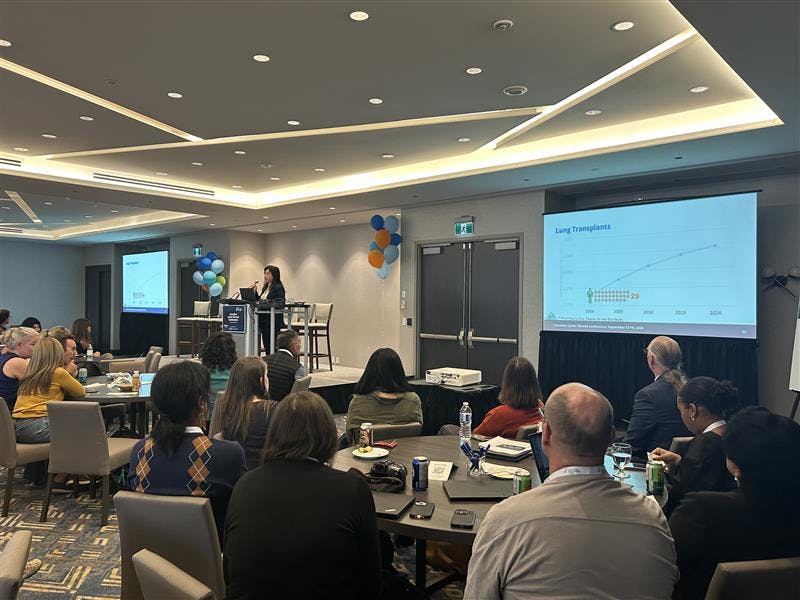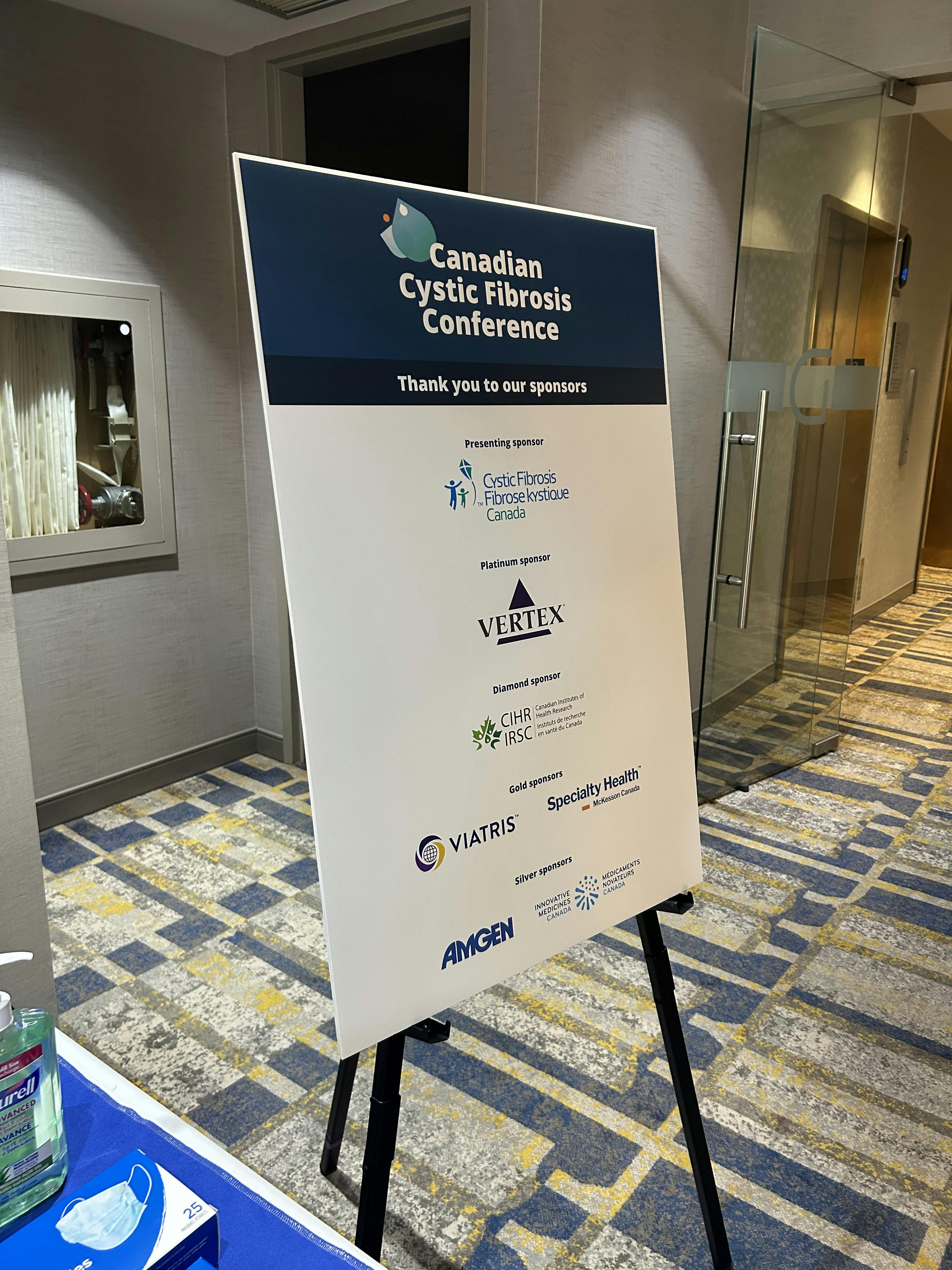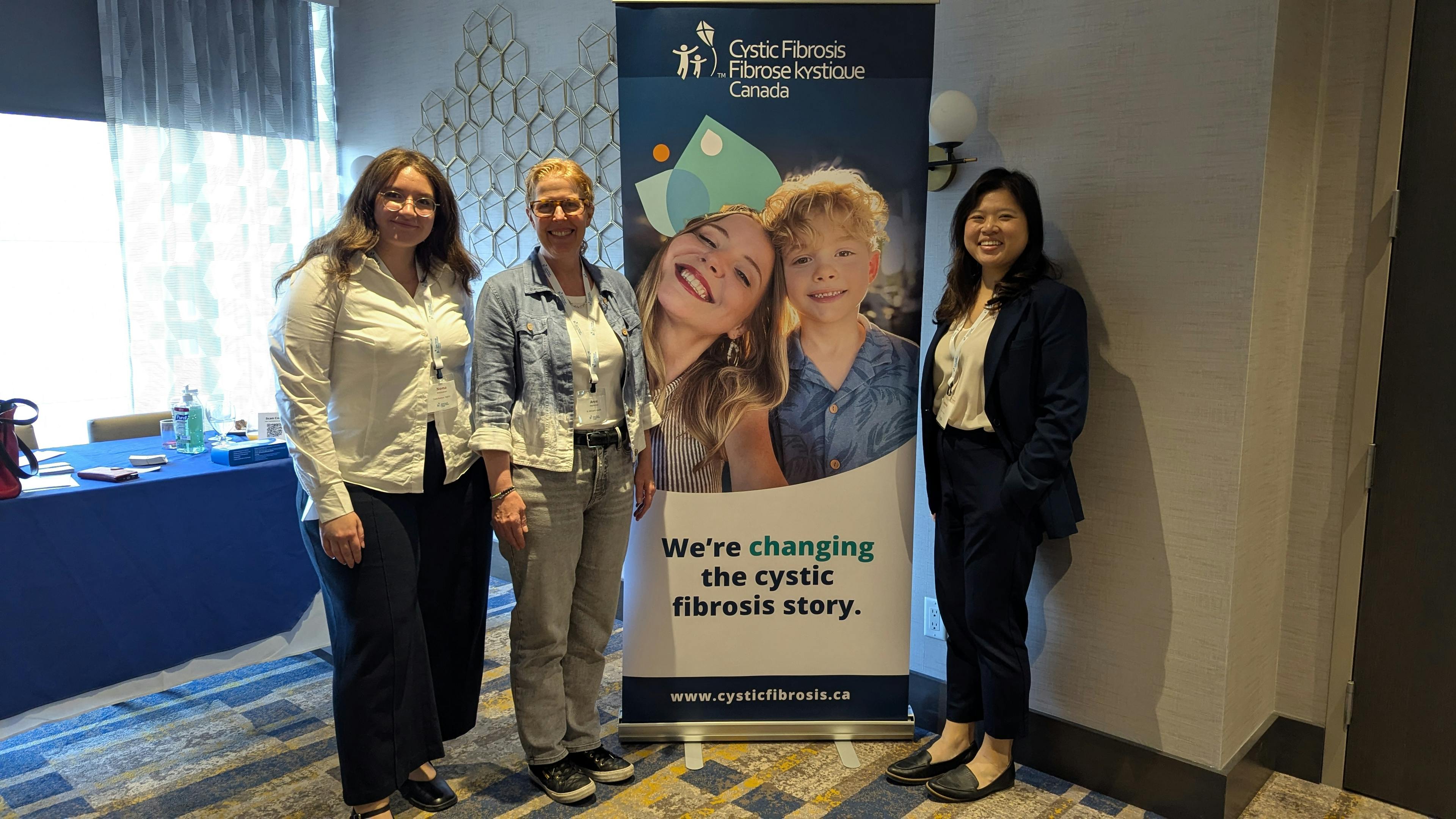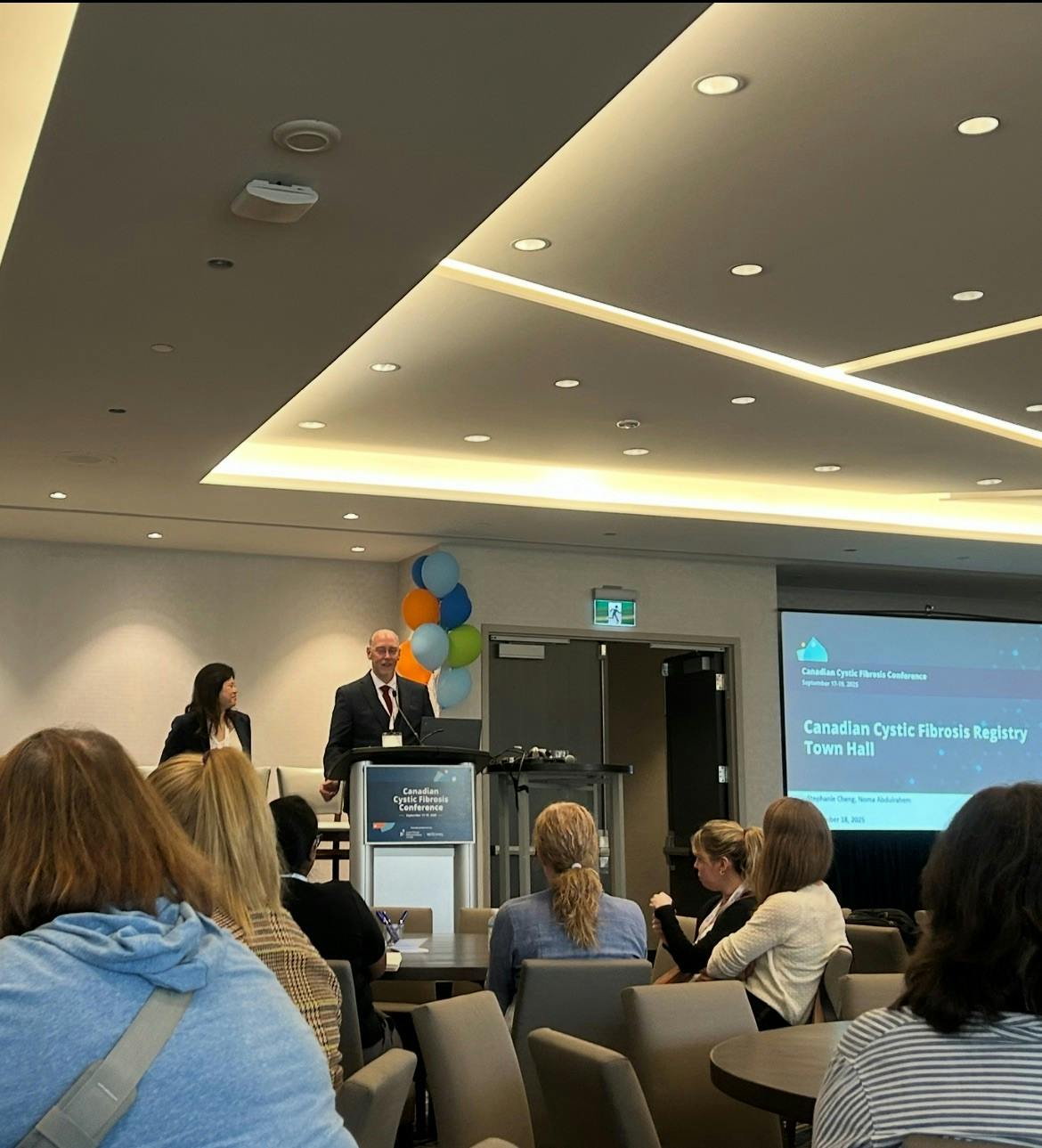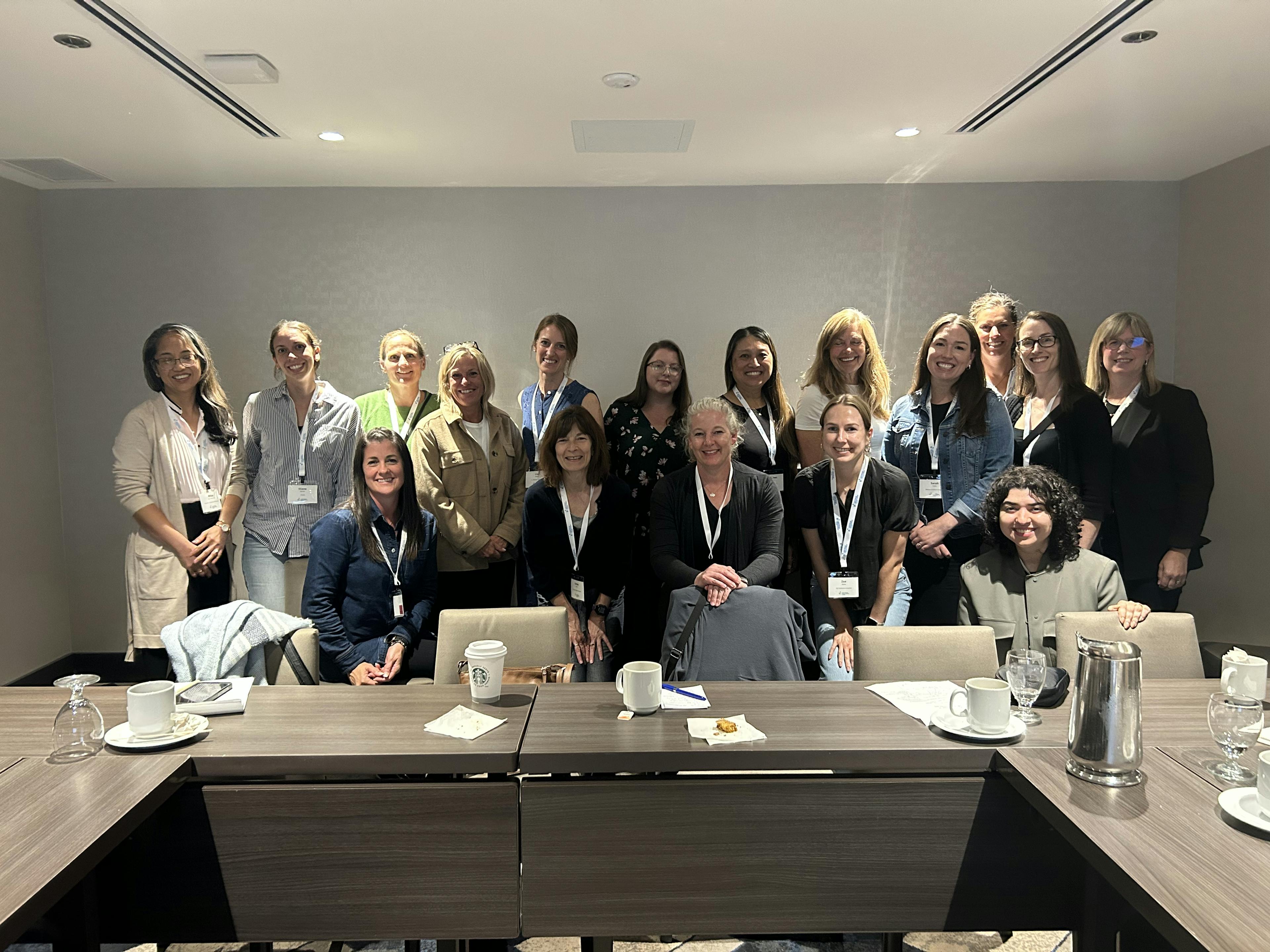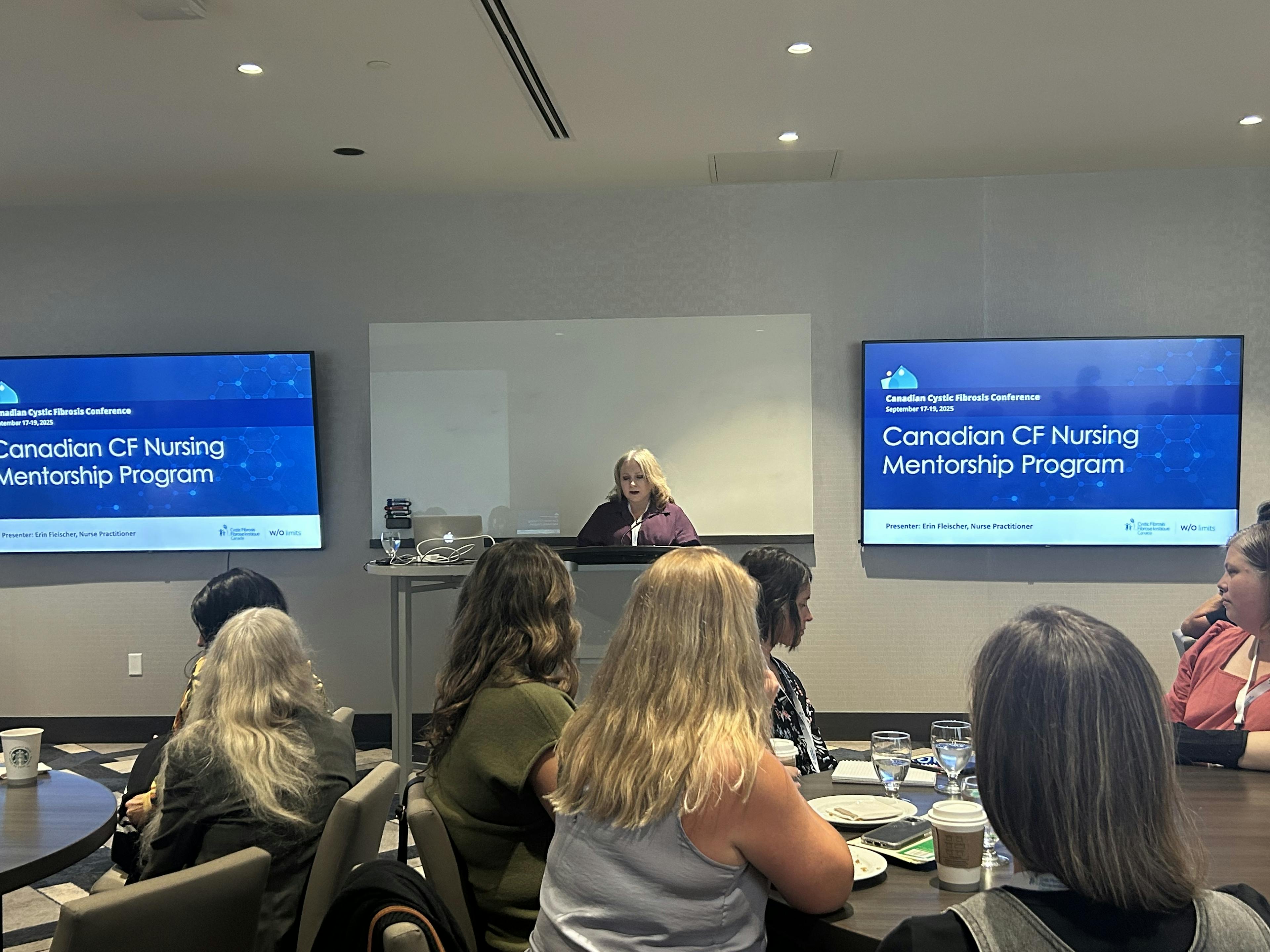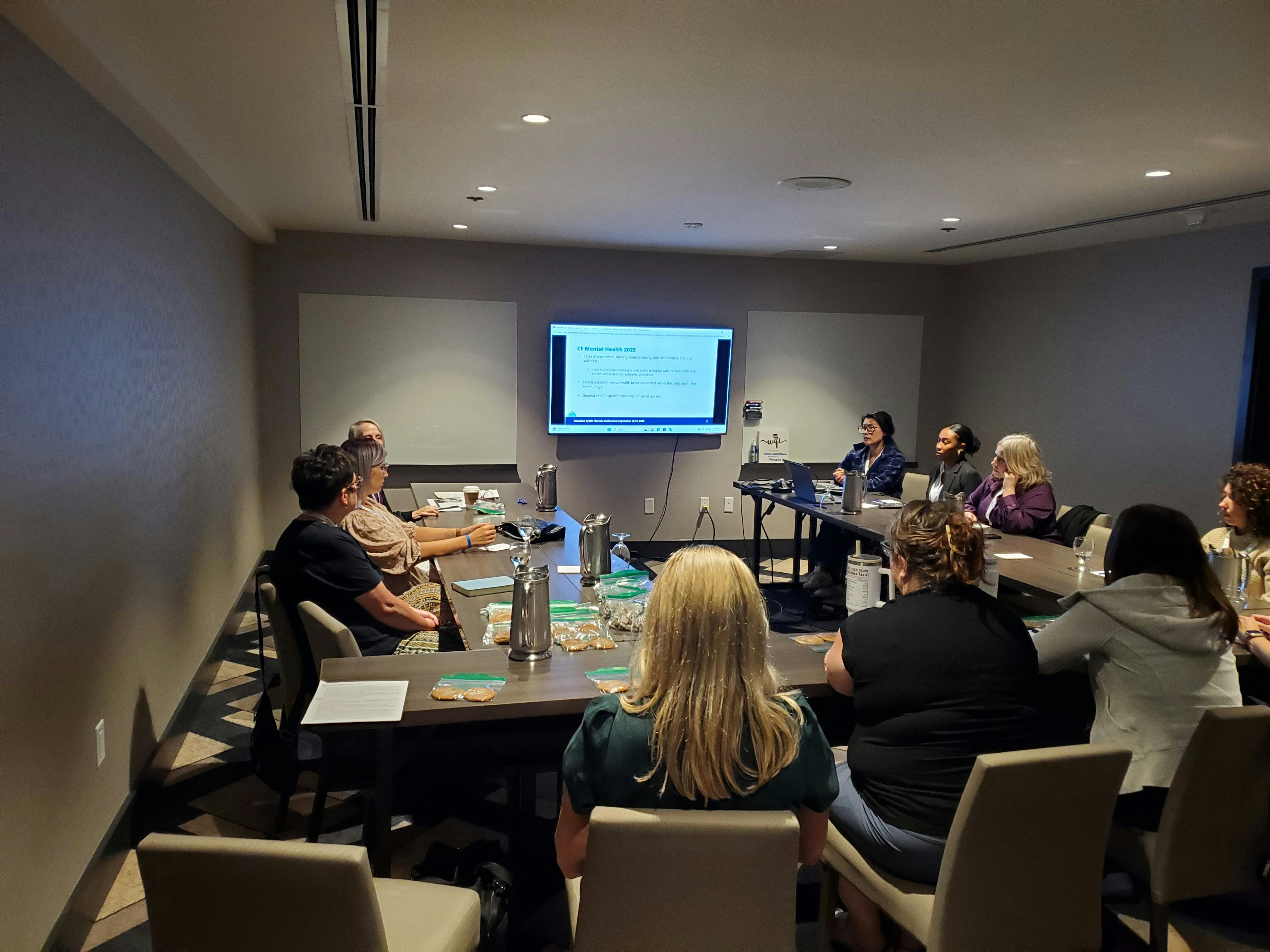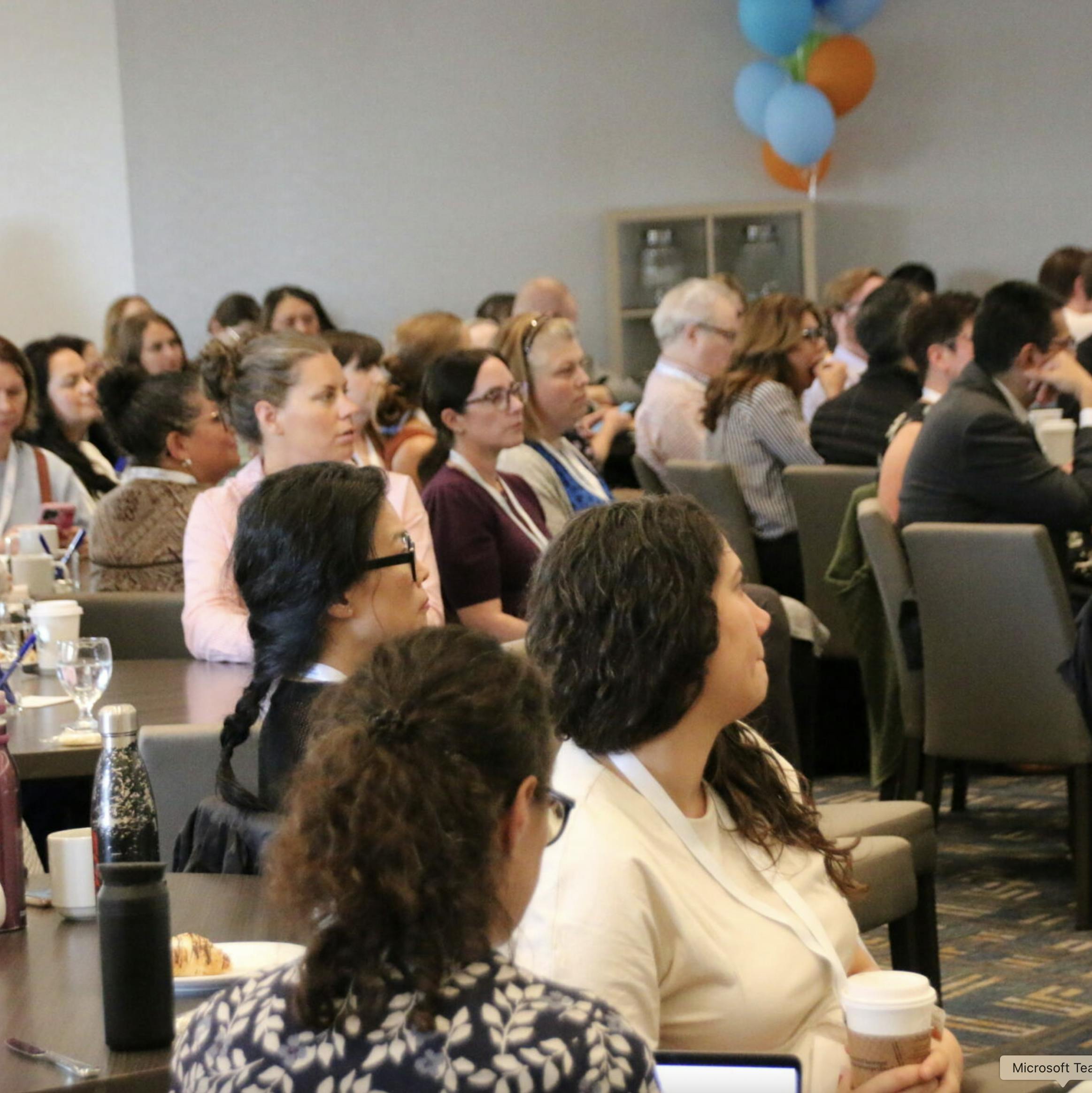From Clinics to Community: Highlights from the CF Canada Conference
September 25, 2025Share this:
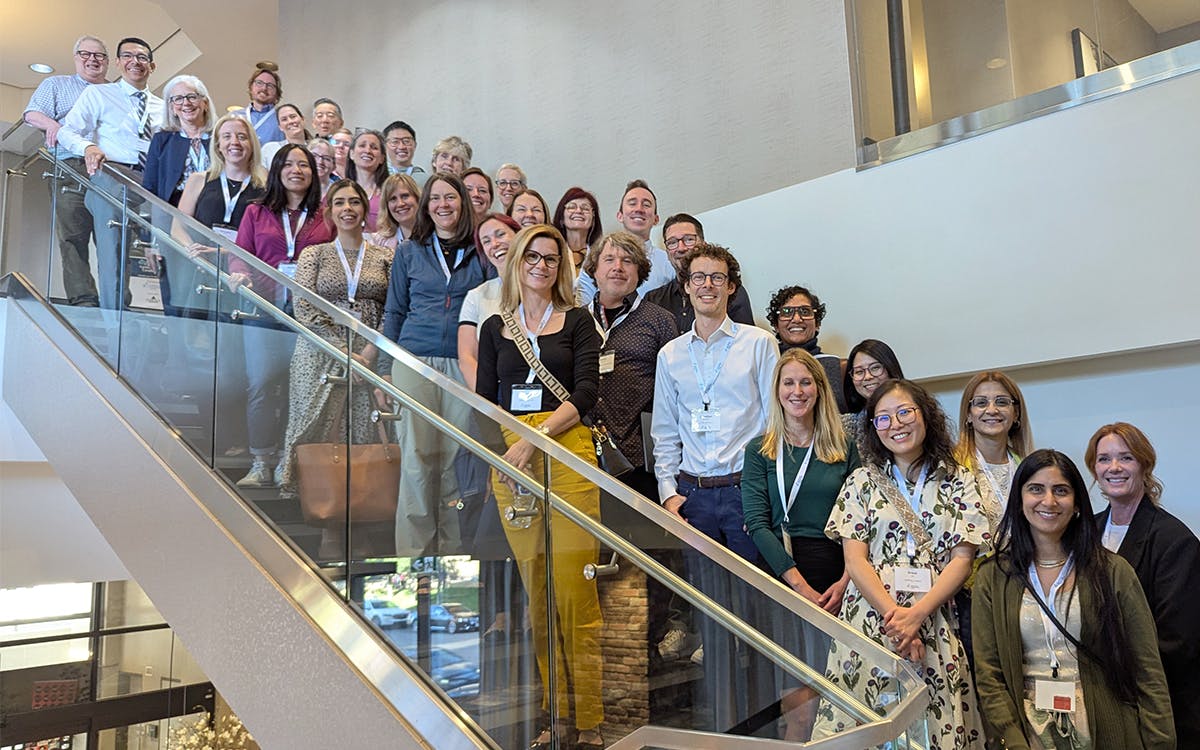
Last week, something special happened in Calgary.
For three days, Cystic Fibrosis Canada had the privilege of bringing together close to 200 clinicians representing the 40 CF clinics across the country. It was more than just a meeting—it was a moment of connection, collaboration, and shared purpose. And it reminded us of the power of community when it comes to improving care for people living with cystic fibrosis.
At the heart of the discussions were new consensus care guidelines--national recommendations that will advise clinical decision making but are still flexible, based on each clinic and each patient. These guidelines have been developed by CF Canada, alongside a dedicated team of clinicians and community representatives. “This will be a uniquely Canadian perspective and will be focused on what works for us in this country,” said Dr. Mark Chilvers, director of BC Children’s Hospital CF clinic and one of the clinicians leading this work (Dr. Liz Tullis, founding director of the Toronto Adult Cystic Fibrosis Clinic, is the other).
Why now? Because CF care is changing. Patients are living longer and healthier lives and we are starting to see new complications arise. For instance, we may start to see obesity in patients who were once told to eat a high-fat diet to keep their weight on. We may also start to see more women with CF going through menopause, an increase in osteoporosis, cystic fibrosis related diabetes or cardiac disease as people age. “These changing times need new guidelines,” said Dr. Chilvers.
Thankfully, more adults are living longer with CF, but that’s putting new pressures on adult clinics. Care teams are adapting, innovating, and sometimes struggling to keep up with the growing complexity of care. The guidelines will help identify gaps, inform future work, and offer recommendations on everything from visit frequency to staffing needs to monitoring and screening protocols.
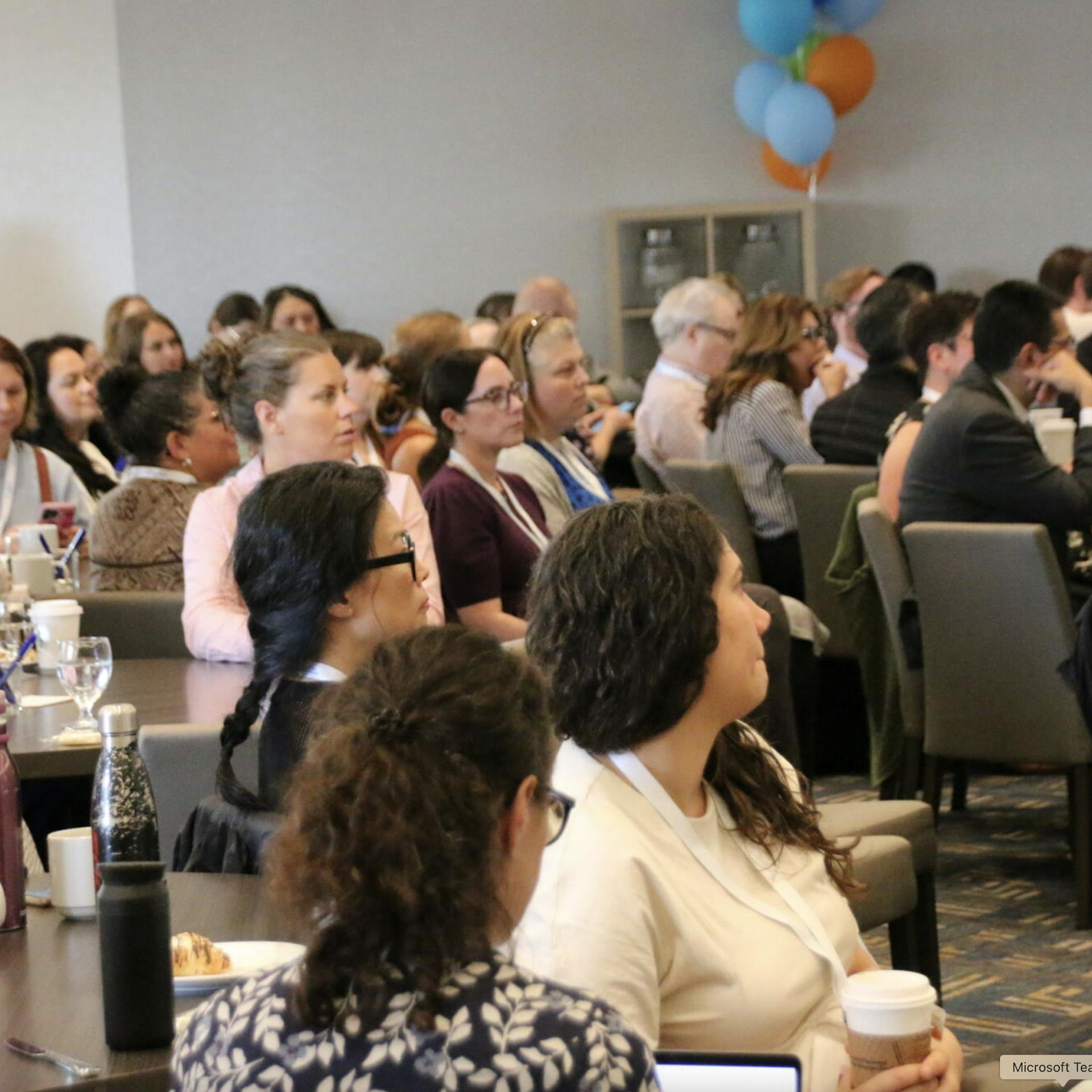
“Our clinicians are so committed to their patients and deeply interested in learning how they can provide better care.
- Kelly Grover, CEO and President, Cystic Fibrosis Canada
Guidelines are only as good as their implementation and much of the time spent at the conference was around how to set each clinic and each discipline up for success when they are rolled out in the new year.
Other sessions included topics like aging with CF, pregnancy, and the importance of clinic trials for unlocking new solutions and treatments. As well, all of the disciplines (nurses, physiotherapists, dietitians, physicians, social workers, pharmacists) hosted their own meetings to discuss relevant topics, share information and learn from each other.,
One recurring theme was around connection and how no matter what province or clinic staff might be attached to, they all count on each other when dealing with a complex case or have a question about a treatment approach. Sharing those learnings ultimately means passing on that knowledge on to the patients and families they serve. That’s why gatherings like this matter so much.
“A highlight for me from this conference was feeling the energy in the room,” said Kelly Grover, Cystic Fibrosis Canada CEO and president. “Our clinicians are so committed to their patients and deeply interested in learning how they can provide better care. Watching them learn, ask questions and discuss with each other ways to improve care was so inspiring to see.”
The Canadian Cystic Fibrosis Conference would not have been possible without the generous support of our sponsors. A heartfelt thank you to Vertex Pharmaceuticals, Canadian Institutes of Health Research (CIHR), Viatris, McKesson Canada, Innovative Medicines Canada, Amgen Canada who supported the event alongside us. We were proud to serve as the presenting sponsor, representing Cystic Fibrosis Canada.
Thank you to everyone who joined us, shared their insights, and helped shape the future of CF care. The feedback and conversations will help the advisory group finalize the consensus guidelines and start rolling them out across the country.








